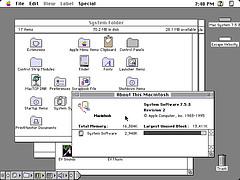 If you don’t use your wisdom to generate positive changes, follow siendfo part of the problem rather than the solution. All good management should be always attentive with promote a process management that favors him in the operation of the company and achieve the goals set for its mission and vision. You must be very attentive in everything related to production processes, as well as all matters concerning good administrative integrated management that you pass to plan actions, strategies that favor him. It is very valid indicating Eduardo Navarro, organizations are as efficient as they are their processes. Most of the companies have become aware of this and are raised like improving them and avoid some common problems like: slow performance, customer, little focus departmental barriers, useless threads due to the lack of global vision of the process, etc.
If you don’t use your wisdom to generate positive changes, follow siendfo part of the problem rather than the solution. All good management should be always attentive with promote a process management that favors him in the operation of the company and achieve the goals set for its mission and vision. You must be very attentive in everything related to production processes, as well as all matters concerning good administrative integrated management that you pass to plan actions, strategies that favor him. It is very valid indicating Eduardo Navarro, organizations are as efficient as they are their processes. Most of the companies have become aware of this and are raised like improving them and avoid some common problems like: slow performance, customer, little focus departmental barriers, useless threads due to the lack of global vision of the process, etc.
Precisely in this reality Navarro reminds us, the incorporation of the new technologies of the information allows you to redefine processes reaching grades of effectiveness and efficiency unimaginable a few years ago. Organizations that are able to discover these possibilities and implement them correctly, get competitive advantages due to the reduction of costs and increased flexibility to the requirements of customers. Business processes must be correctly managed using the information systems for management (ERP Enterprise Resource Planning in English). An information system for the ERP management can be defined as an application of business management that integrates the information flow, achieving thus improving processes in different areas (financial, production, logistics, commercial and human resources). Adds us Wikipedia, that ERP systems are occasionally called back office (backroom) since they indicate that the customer and the general public are not directly involved. This system is in contrast with the opening system data (front office), which creates an administrative relationship of consumer or customer (CRM) service a system that deals directly with customers or systems of electronic business such as e-commerce, e-Government, electronic telecommunications and electronic finance; It is also a system that deals directly with the providers, not only establishing an administrative relationship with them (SRM).